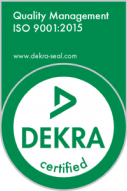We’ve seen many times over the years where the expected back-office and administrative synergies —even the conservative estimates — just don’t materialize. Information technology can be especially troublesome in some of these cases and is more often than not an important reason behind the missed investment thesis expectations if not the prime suspect. You can see evidence of these issues in many companies. Everyone is probably aware of a company or two several years post-transaction that has multiple email systems or accounting systems that never were fully integrated. It happens often.
A recent deal we were providing IT diligence services on is a particularly good example of one of the most common ways IT can cause a negative impact on expected cost savings and productivity improvements both short and long-term. In this particular case, the private equity deal team was able to identify the issue early on in the deal and we were able to assist them with detailed analysis so they could effectively adjust their models to compensate for the associated cost.
In this particular instance, the private equity group was interested in carving out several similar divisions of multiple parent companies and putting them together under one operating entity with multiple product lines. Each division ran a different core ERP system, and the initial deal assumption was that back office and systems could be consolidated onto the most effectively managed division-level systems platform resulting in significant synergies post-consolidation as well as some related operating efficiencies.
One of the most important things to remember about IT is that typically the more systems you involve, the more complex (and expensive) IT gets. In order to consolidate all of the system platforms onto one of the division’s systems, the combined company would need to select which one best fits their needs. With competing divisions, this would likely not be an easy task—the systems not selected would require significant change to the users, and businesses in those divisions would feel the productivity impact of switching systems. A software selection project with quite a bit of concern from all parties would be the first step.
Once a ‘favored’ system was selected each of the divisions would need to plan as a combined entity how to migrate from their current system to the ‘favored’ system. Even in like businesses, slight differences in process flows, approval levels, inventory, general ledgers, and reporting dictate careful analysis in the planning and migration process— not far from the level needed to implement a completely new system. Depending on the system being migrated to, the number of users and per-user cost may be higher than the previous system if the system is more robust and capable than the system it is replacing.
While the combined company IT group and users may get rather good at implementation by the time the fourth or fifth division is migrated, the time and cost add up quickly as well as the lost productivity typical in learning a new system. Throughout this process, the combined company would need an IT group capable of managing the centralized platform that would support the larger user base going forward as well as managing an ongoing migration project with each of the separate divisions. This added substantial cost to an already expensive proposition.
On this deal, the private equity deal team noticed the issue early and we did a detailed evaluation and cost study on the consolidation project. The project cost ended up being a multiple of seven to nine times more expensive than the initial ballpark estimate and was an important factor in the private equity deal team not proceeding with the acquisition.
About Columbia Advisory Group:
Columbia Advisory Group (CAG) is a leading Information Technology (IT) consulting firm. CAG’s team has assessed and helped improve the performance of more than 300 technology organizations and IT departments, including many higher education institutions, state agencies, and Fortune 50 customers. Practice specialty areas include Infrastructure, IT Service Management, Cybersecurity, and A/V Services. CAG improves business outcomes with IT insights and expert technical support. Based in Dallas, Texas, CAG works extensively with clients throughout the U.S. Contact us at info@columbiaadvisory.com.

David McLaughlin
CEO

